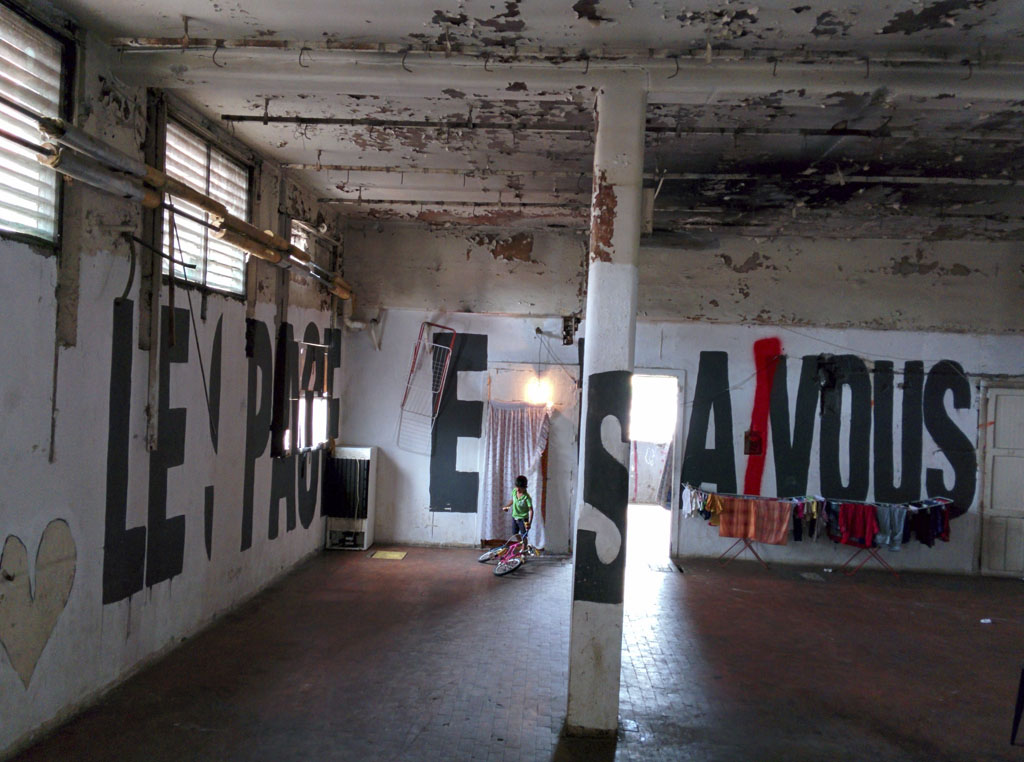24-06-21 // THE MAGIC OF SQUATTING – INTERVIEW WITH HANS PRUIJT

Metropoliz Squat, Rome, 2014
Photo by Hans Pruijt
Bernd Upmeyer interviewed Hans Pruijt, who is an assistant professor at the Sociology Department of Erasmus University in Rotterdam. His main topic of interest is empowerment in various contexts, especially working life and urban social movements. In the late 1970s he was involved in the Dutch squatting movement occupying buildings to fight against the demolition of entire neighbourhoods in Amsterdam. As a sociologist he has written extensively on the topic of squatting in articles such as “The Impact of Citizens’ Protest on City Planning in Amsterdam”, “Squatters in the Creative City”, or “The Logic of Urban Squatting”. The interview took place via Zoom on June 24, 2021.
[…]
Bernd Upmeyer: In 2004 you wrote a piece called “The Impact of Citizens’ Protest on City Planning in Amsterdam”. What did you argue?
Hans Pruijt: The main arguments of the article I had written down already in 1984, because they were part of my master thesis. But in 2004 I got the chance to publish some of the ideas. In the article I described what city planning looked like in 1968 when planners wanted to get rid of many 19th Century neighbourhoods and create a subway network, making bigger roads, and a central business district. I traced all these plans and showed what would have happened to them without the protests. Eventually most of them got derailed, because of the protest movements in which many squatters were involved that I described earlier. And in the article I described how the protests made the projected central business district in the Eastern part of the inner city less feasible, especially since a viable alternative location in the south was available. This location, now named the “Zuidas” 10, was eventually developed. I based my prediction on studies researching what businesses really need and want. Because what they especially wish for is to have good access to roads so they can easily be reached by car. And since the plans for larger roads in the centre of Amsterdam were thwarted and sabotaged by the protests that were squatting and blocking highway plans, Amsterdam’s inner city was therefore no longer attractive to larger businesses. But as building larger roads was still possible in the south of the city, Amsterdam’s city planning was changed accordingly, which demonstrates the impact of protests on city planning.
BU: In 2011 and in “The Logic of Urban Squatting” you explain that squatters’ movements can overlap with other urban movements in protest waves. How does that work and how powerful are such amplified protests waves?
HP: Social movements typically occur in waves and one of these waves occurred around 1980. That happens when at the same time in different locations and different countries protests take place on different topics that are somehow interconnected and inspire each other. One of the recent protest waves is the Arab Spring. Populism, whether left-wing or progressive, I would describe also as a protest wave. And squatting was especially important in the protest waves of the 1980s and also important in the protest wave of 2011 in Southern Europe, the 15-M Movement, when a lot of young people were unemployed and had no future, who then organised big occupations and protests. There are always enough reasons to protest, like the fact that today it is almost impossible for young people to find an affordable place to live here in The Netherlands, where we have an enormous housing shortage.
… the complete interview was published in MONU #34 on the topic of Protest Urbanism on October 18, 2021.
Title: The Magic of Squatting
Project: Interview with Hans Pruijt
Date: June 2021
Type: Commissioned interview
Topic: Protest Urbanism
Organizer: MONU
Status: Published
Publications: MONU #34, P. 70-77
Interviewer: Bernd Upmeyer